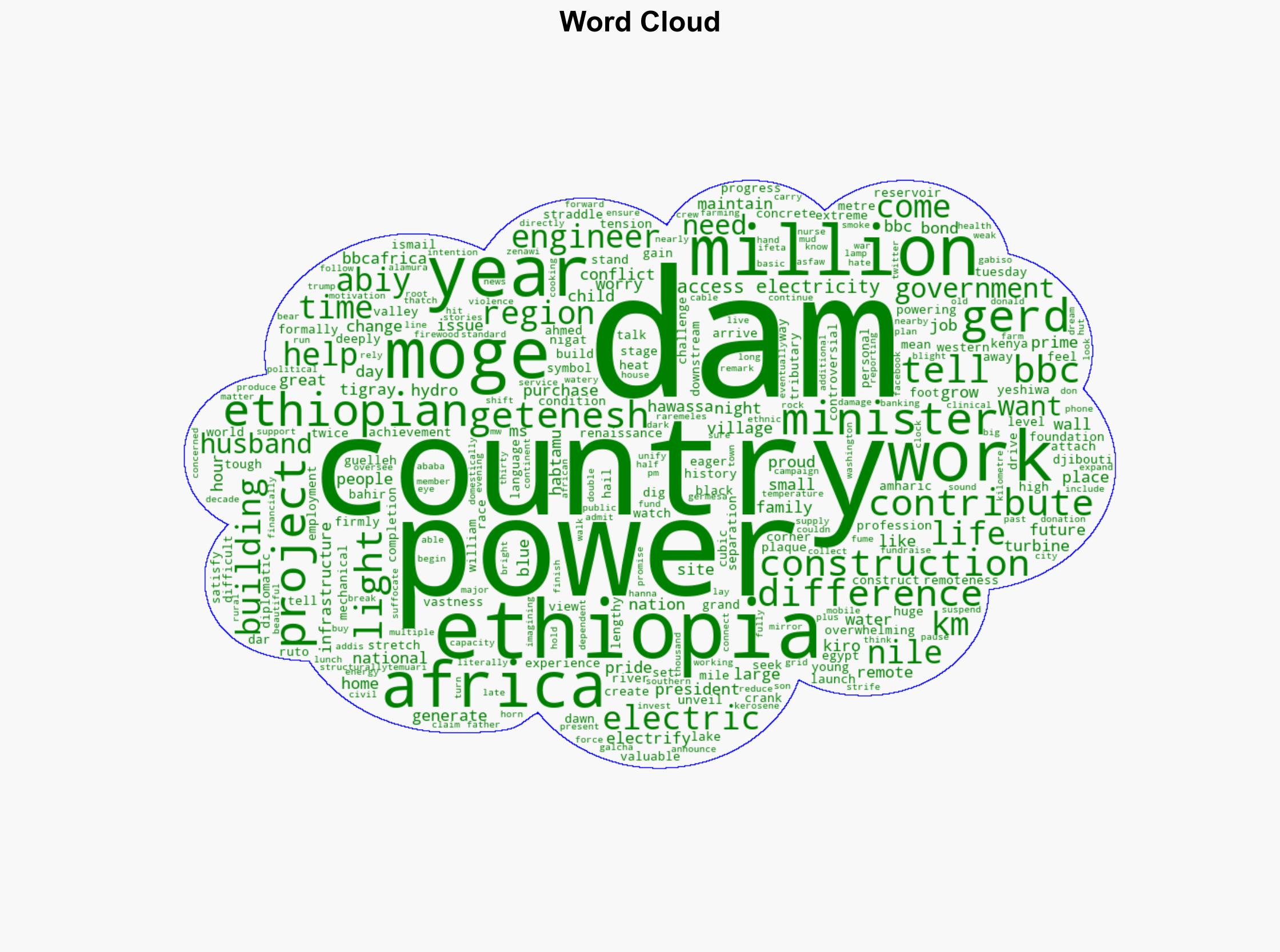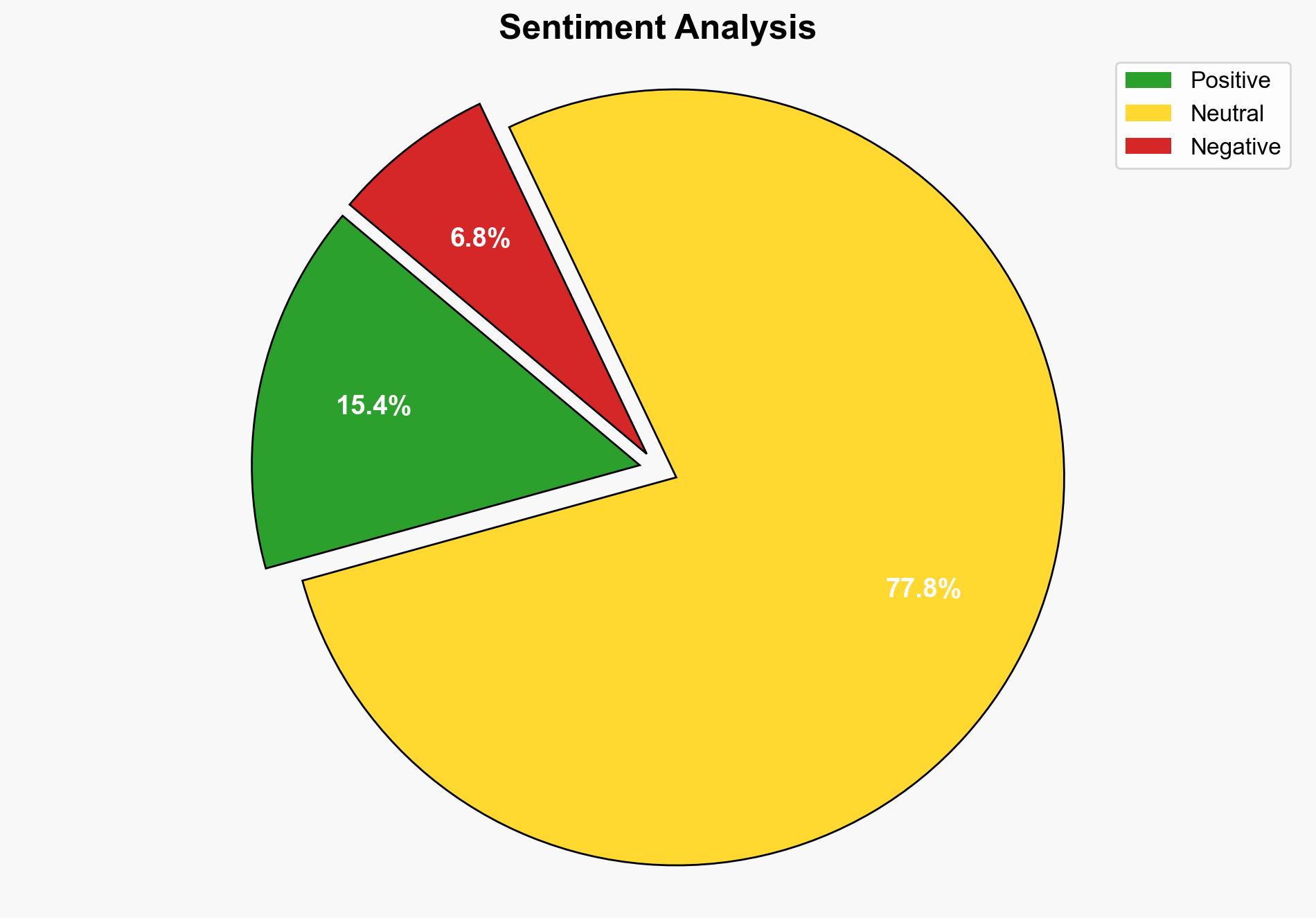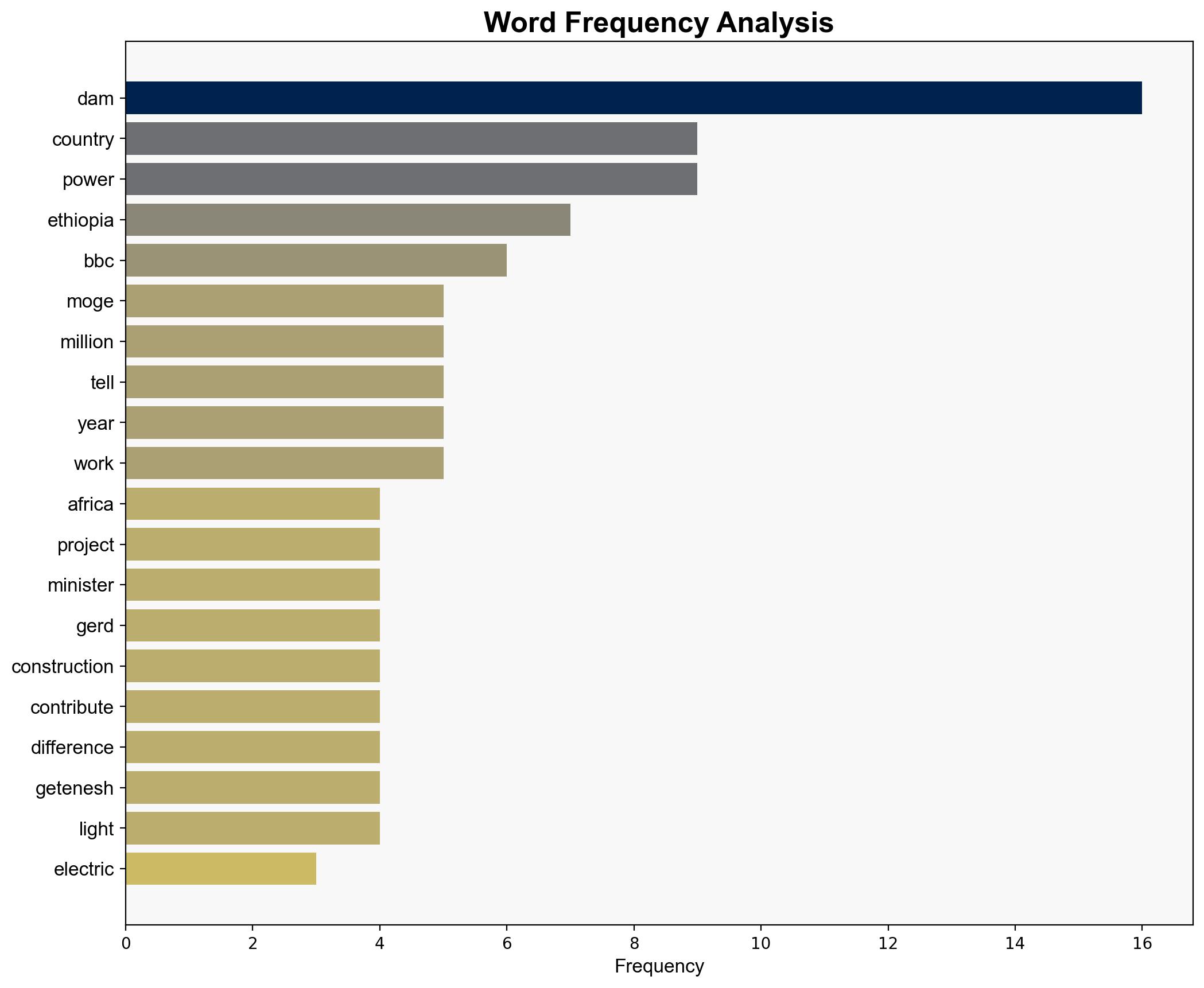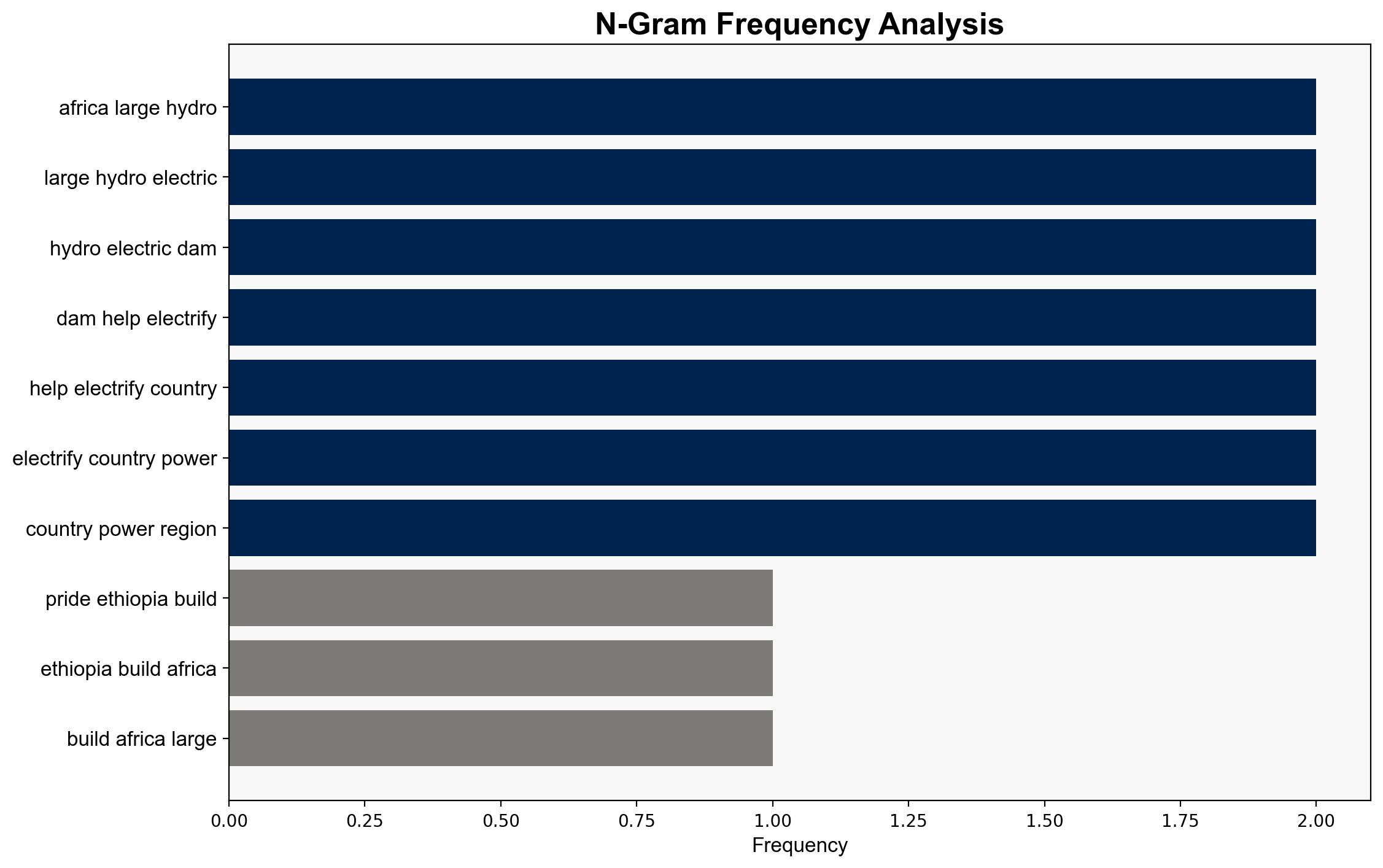The pride of Ethiopia – What it took to build Africa’s largest hydro-electric dam – BBC News
Published on: 2025-09-09
Intelligence Report: The pride of Ethiopia – What it took to build Africa’s largest hydro-electric dam – BBC News
1. BLUF (Bottom Line Up Front)
The Grand Ethiopian Renaissance Dam (GERD) represents a significant national achievement for Ethiopia, symbolizing both technological progress and potential regional tension. The most supported hypothesis is that GERD will enhance Ethiopia’s energy independence and regional influence, though it risks exacerbating diplomatic tensions with downstream countries, particularly Egypt. Confidence level: Moderate. Recommended action: Engage in proactive diplomatic efforts to mitigate regional tensions and ensure equitable water resource management.
2. Competing Hypotheses
1. **Hypothesis A**: GERD will primarily serve as a catalyst for Ethiopia’s economic development and energy self-sufficiency, fostering national pride and regional influence.
– **Supporting Evidence**: The dam is expected to double Ethiopia’s power generation capacity, providing electricity to millions and symbolizing national unity and progress.
2. **Hypothesis B**: GERD will exacerbate regional tensions, particularly with Egypt, due to concerns over water rights and resource allocation, potentially leading to diplomatic or even military conflict.
– **Supporting Evidence**: The dam’s construction has already been a point of contention in diplomatic talks, with Egypt expressing significant concerns over its impact on Nile water flow.
Using ACH 2.0, Hypothesis A is better supported due to Ethiopia’s internal focus on economic benefits and national pride, though Hypothesis B remains plausible given historical tensions over Nile water rights.
3. Key Assumptions and Red Flags
– **Assumptions**: Ethiopia will manage the dam’s operations in a way that minimizes downstream impact. Regional diplomatic channels will remain open and effective.
– **Red Flags**: Lack of transparent water management agreements with downstream countries. Potential underestimation of Egypt’s response to perceived threats to its water security.
– **Blind Spots**: The internal political dynamics within Ethiopia that could affect the dam’s operations and regional diplomacy.
4. Implications and Strategic Risks
– **Economic**: Successful operation of GERD could significantly boost Ethiopia’s economy, reducing energy costs and increasing industrial capacity.
– **Geopolitical**: Failure to address regional concerns could lead to heightened tensions with Egypt and Sudan, potentially destabilizing the region.
– **Psychological**: National pride associated with GERD could bolster domestic support for the government, but failure to manage regional tensions could lead to internal dissent.
5. Recommendations and Outlook
- Engage in multilateral negotiations with Egypt and Sudan to establish transparent and equitable water-sharing agreements.
- Develop contingency plans for potential diplomatic fallout or economic sanctions from downstream countries.
- Scenario Projections:
- Best Case: GERD operates smoothly, enhancing regional cooperation and economic growth.
- Worst Case: Diplomatic breakdown leads to regional conflict or economic sanctions against Ethiopia.
- Most Likely: Continued diplomatic negotiations with periodic tensions, but no significant escalation.
6. Key Individuals and Entities
– Abiy Ahmed
– William Ruto
– Ismail Guelleh
– Moge Yeshiwa
– Kiro Asfaw
– Getenesh Gabiso
7. Thematic Tags
national security threats, regional focus, energy independence, diplomatic relations, water resource management





